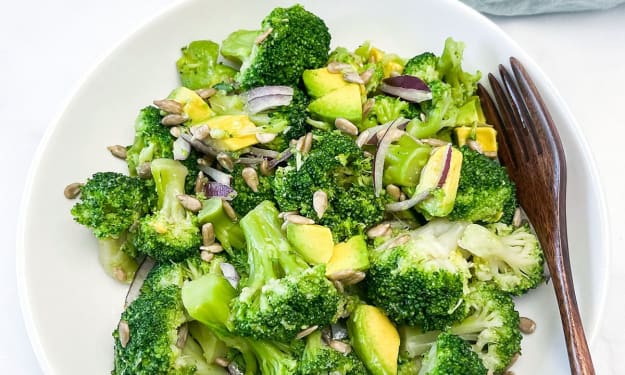Nutrition for Menstrual Cycle Optimization
Optimizing Energy, Hormones, and Health with Strategic Nutrition Strategies for Each Menstrual Phase

As women, our bodies go through a natural hormonal cycle every month. This cycle affects not only our mood, energy levels, and menstrual flow but also our nutritional needs. Understanding how to eat for the different stages of your cycle can help you manage your symptoms, support your overall health, and even improve your fertility. In this article, nutritionist Jacqueline AL will share her tips for eating during each stage of the menstrual cycle.
I. Menstrual Phase (Days 1-5) The menstrual phase is the time when you experience bleeding from your uterus, which marks the start of your cycle. During this phase, your body is shedding the lining of your uterus, which means you're losing blood and important nutrients like iron. Here's how to eat to support your body during this phase:
1. Eat iron-rich foods: Include foods like red meat, chicken, turkey, lentils, beans, spinach, and dark chocolate in your diet. Iron-rich foods can help replenish your iron stores and prevent anemia, a condition that can cause fatigue, weakness, and shortness of breath.
2. Stay hydrated: Drink plenty of water and other fluids to replace the fluids lost during your period. Drinking herbal teas like ginger, chamomile, and raspberry leaf tea can also help ease cramps and reduce inflammation.
3. Eat anti-inflammatory foods: Some women experience painful cramps, bloating, and mood swings during their period. Eating anti-inflammatory foods like fatty fish (salmon, sardines), nuts, seeds, and leafy greens can help reduce inflammation and ease your symptoms.
II. Follicular Phase (Days 6-14) The follicular phase starts on the first day of your period and lasts until ovulation. During this phase, your body is preparing to release an egg from the ovary. Here's how to eat to support your body during this phase:
1. Focus on complex carbohydrates: Include complex carbohydrates like whole grains, fruits, and vegetables in your diet. These foods provide energy and support the production of hormones like estrogen and progesterone.
2. Eat protein-rich foods: Eating protein-rich foods like eggs, fish, chicken, and tofu can help support the growth of ovarian follicles, which produce and release estrogen.
3. Include healthy fats: Eating healthy fats like avocados, nuts, seeds, and olive oil can help balance your hormones and reduce inflammation.
III. Ovulatory Phase (Day 14) The ovulatory phase is the time when your body releases an egg from the ovary. This phase lasts for about 24 hours and is the most fertile time in your cycle. Here's how to eat to support your body during this phase:
1. Eat foods rich in luteinizing hormone (LH): LH is a hormone that triggers ovulation. Eating foods like egg yolks, spinach, and almonds, which are rich in LH, can help support ovulation.
2. Focus on nutrient-dense foods: Include foods like leafy greens, berries, and nuts in your diet. These foods are rich in antioxidants and nutrients like vitamin C, which can help support egg health and fertility.
3. Stay hydrated: Drink plenty of water and other fluids to support cervical mucus production, which is essential for sperm survival and motility.
IV. Luteal Phase (Days 15-28) The luteal phase starts after ovulation and lasts until the start of your next period. During this phase, your body prepares for pregnancy by thickening the lining of the uterus. Here's how to eat to support your body during this phase:
1. Eat foods rich in progesterone: Progesterone is a hormone that prepares the uterus for pregnancy. Eating foods like broccoli, kale, and nuts, which contain compounds that support progesterone production, can help support this phase of your cycle.
2. Focus on fiber-rich foods: Including fiber-rich foods like whole grains, fruits, and vegetables in your diet can help regulate bowel movements and prevent constipation, which is a common symptom during this phase.
3. Eat foods rich in vitamin B6: Vitamin B6 is important for the production of progesterone and can help reduce symptoms like bloating, breast tenderness, and mood swings. Foods rich in vitamin B6 include bananas, potatoes, and chicken.
4. Include healthy fats: Eating healthy fats like avocados, nuts, seeds, and olive oil can help balance your hormones and reduce inflammation, which is especially important during this phase.
In conclusion, understanding how to eat for the different stages of your menstrual cycle can help support your body's natural hormonal fluctuations and improve your overall health. Eating a balanced and nutrient-dense diet that includes complex carbohydrates, protein, healthy fats, and a variety of fruits and vegetables can help support your body's needs throughout your cycle. Additionally, staying hydrated and incorporating anti-inflammatory and iron-rich foods can help manage symptoms and support optimal health. As always, it's important to listen to your body and make adjustments as needed to support your individual needs.
It's worth noting that everyone's menstrual cycle is different, and factors like stress, exercise, and underlying health conditions can also impact your nutritional needs. It's always a good idea to consult with a healthcare provider or registered dietitian if you have any concerns or questions about your diet and menstrual cycle.
It's also important to remember that nutrition is just one aspect of managing menstrual symptoms and supporting reproductive health. Other lifestyle factors like exercise, stress management, and sleep can also play a crucial role in supporting your body throughout your cycle. By taking a holistic approach to your health and wellness, you can help support your body's natural rhythms and feel your best all month long.
In summary, eating for the different stages of your menstrual cycle can help support your body's unique needs and improve your overall health and well-being. By incorporating nutrient-dense foods, staying hydrated, and focusing on anti-inflammatory and hormone-balancing foods, you can help manage symptoms and optimize your reproductive health. Remember to listen to your body, seek support when needed, and take a holistic approach to your health and wellness.
Now let's dive into some specific tips for each phase of the menstrual cycle:
1. Menstrual phase: During the menstrual phase, it's important to focus on foods that can help replenish iron stores, support energy levels, and reduce inflammation. Here are some tips:
• Eat iron-rich foods: Women lose iron during their menstrual cycle, so it's important to consume iron-rich foods like spinach, beans, and fortified cereals to help replenish stores.
• Incorporate anti-inflammatory foods: Consuming anti-inflammatory foods like turmeric, ginger, and fatty fish can help reduce inflammation and alleviate menstrual cramps.
• Stay hydrated: Drinking plenty of water and consuming foods with high water content, such as watermelon and cucumber, can help prevent dehydration and support healthy digestion.
2. Follicular phase: During the follicular phase, the body is preparing for ovulation and estrogen levels begin to rise. Here are some tips to support this phase:
• Include complex carbohydrates: Eating complex carbohydrates like whole grains, sweet potatoes, and quinoa can help support energy levels and balance blood sugar.
• Consume hormone-balancing foods: Eating foods like broccoli, cauliflower, and cabbage can help support liver detoxification and balance hormones.
• Incorporate omega-3 fatty acids: Consuming omega-3 fatty acids found in fatty fish, chia seeds, and flaxseeds can help reduce inflammation and support healthy hormone production.
3. Ovulatory phase: During the ovulatory phase, the body is preparing for ovulation and estrogen levels are at their peak. Here are some tips to support this phase:
• Eat foods rich in vitamin C: Consuming vitamin C-rich foods like oranges, bell peppers, and strawberries can help support healthy ovulation and reduce inflammation.
• Incorporate protein-rich foods: Eating protein-rich foods like eggs, tofu, and chicken can help support healthy egg development and hormone production.
• Include healthy fats: Consuming healthy fats like avocados, nuts, and seeds can help support hormone production and reduce inflammation.
4. Luteal phase: During the luteal phase, progesterone levels rise and the body prepares for menstruation. Here are some tips to support this phase:
• Eat foods that support progesterone production: Consuming foods like sweet potatoes, almonds, and pumpkin seeds, which contain compounds that support progesterone production, can help support this phase.
• Focus on fiber-rich foods: Including fiber-rich foods like whole grains, fruits, and vegetables in your diet can help regulate bowel movements and prevent constipation, which is a common symptom during this phase.
• Eat foods rich in vitamin B6: Vitamin B6 is important for the production of progesterone and can help reduce symptoms like bloating, breast tenderness, and mood swings. Foods rich in vitamin B6 include bananas, potatoes, and chicken.
• Include healthy fats: Eating healthy fats like avocados, nuts, seeds, and olive oil can help balance your hormones and reduce inflammation, which is especially important during this phase.
In conclusion, understanding how to eat for the different stages of your menstrual cycle can help support your body's natural hormonal fluctuations and improve your overall health. Eating a balanced and nutrient-dense diet that includes complex carbohydrates, protein, healthy fats, and a variety of fruits and vegetables can help support your body's needs throughout your cycle. Additionally, staying hydrated and incorporating anti-inflammatory and iron-rich foods can help manage symptoms and support optimal health. As always, it's important to listen to your body and make adjustments as needed to support your individual needs.
Here are some additional tips to help you eat for your menstrual cycle:
1. Plan ahead: It can be helpful to plan your meals and snacks ahead of time, especially during your menstrual phase when energy levels may be lower. Meal prepping and having healthy snacks on hand can make it easier to stick to your dietary goals and support your body's needs.
2. Consider supplements: If you have difficulty meeting your nutrient needs through diet alone, supplements may be a helpful addition. Iron, magnesium, and omega-3 fatty acid supplements are commonly recommended for women during their menstrual cycle.
3. Limit caffeine and alcohol: Both caffeine and alcohol can disrupt hormone balance and exacerbate symptoms like anxiety, mood swings, and breast tenderness. Limiting or avoiding these substances during your menstrual cycle can help reduce symptoms.
4. Practice mindful eating: Paying attention to your hunger and fullness cues, and eating slowly and mindfully, can help support healthy digestion and reduce bloating and discomfort.
5. Seek support: If you're experiencing severe menstrual symptoms or have concerns about your menstrual cycle, it's important to seek support from a healthcare provider or registered dietitian. They can help you identify any underlying health conditions and provide personalized dietary recommendations to support your health and wellness.
By incorporating these tips into your lifestyle, you can help support your body's natural rhythms and feel your best all month long. Remember that every woman's menstrual cycle is different, so it's important to listen to your body and make adjustments as needed to support your individual needs.





Comments
There are no comments for this story
Be the first to respond and start the conversation.